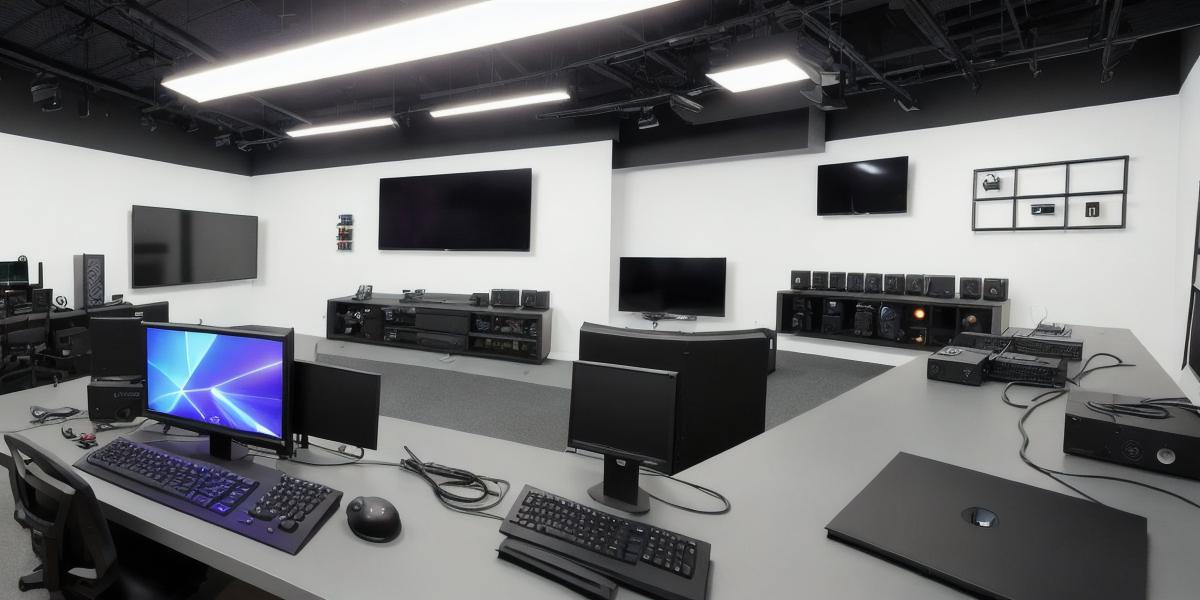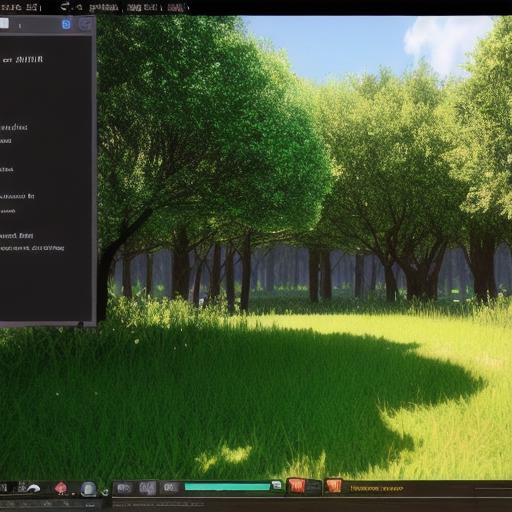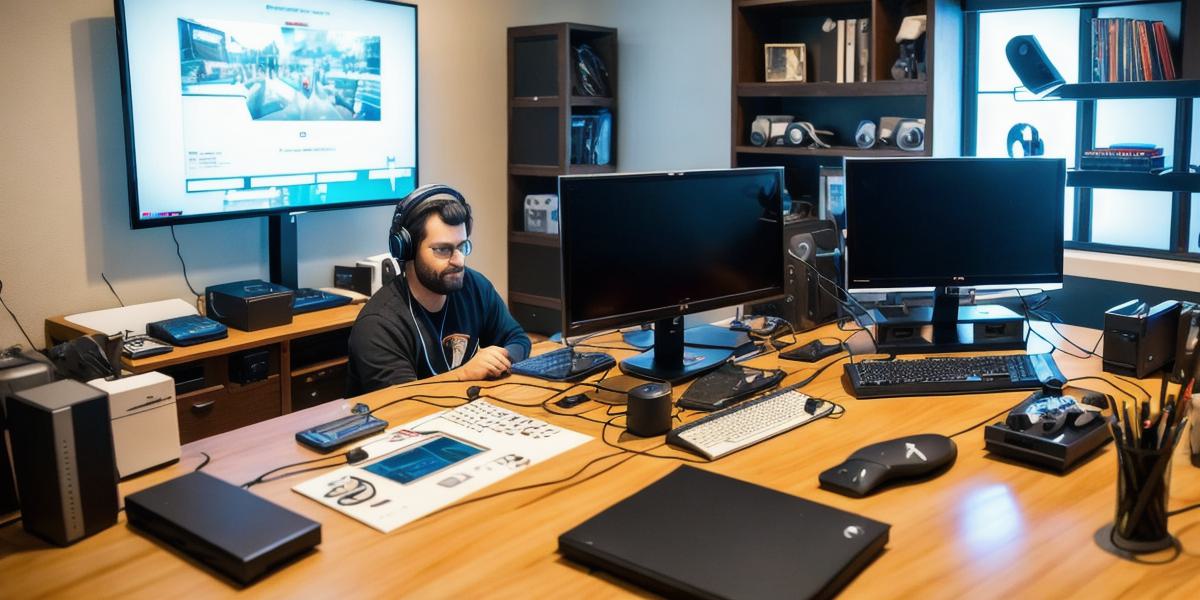Introduction
Game development has come a long way since its inception, and it’s now easier than ever to create your own video games. With the right tools and resources, anyone can start building their own games, whether they’re a beginner or an experienced game developer. In this article, we will take a closer look at the top 10 game development tools that you can use to create video games.
What are Game Development Tools?
Game development tools are software programs and resources that help game developers build, design, and test video games. These tools can be used for tasks such as creating levels, characters, animations, and sound effects. They can also be used for programming and scripting, debugging, and testing games.
Why Use Game Development Tools?
Game development tools make it easier to create high-quality video games. They provide a range of features and functionalities that help you build games more efficiently and effectively. Some of the benefits of using game development tools include:
- Improved productivity: Game development tools automate many tasks, saving you time and effort so you can focus on creating your game’s content.
- Consistency: Game development tools provide a consistent framework for building games, ensuring that they are built to industry standards and best practices.
- Collaboration: Many game development tools allow multiple users to work on the same project simultaneously, making it easier to collaborate with others.
-
Quality assurance: Game development tools include features such as debugging and testing tools, which help you find and fix errors in your game, ensuring that it is of high quality.
How We Chose the Top 10 Game Development Tools
To create this list of the top 10 game development tools, we conducted extensive research and analysis of available tools. We looked at factors such as user reviews, industry awards, market share, and functionality to determine which tools were the most effective for creating video games. We also consulted with experts in the field to get their insights and opinions.
- Blender
Blender is a free and open-source game development tool that allows you to create 3D models, animations, and environments for your games. It’s a versatile tool that can be used for both 2D and 3D game development, and it has a large community of users who contribute to its development and provide support and resources.
Blender is known for its user-friendly interface, which makes it easy to learn and use, even for beginners. It also includes a range of features such as modeling tools, animation tools, texturing tools, and rendering tools that make it easy to create high-quality game assets. One of the benefits of Blender is that it’s free to use, making it an accessible tool for anyone who wants to start creating games.
- Unity
Unity is a popular game development tool that allows you to create both 2D and 3D games for multiple platforms, including PC, mobile, web, and consoles. It’s known for its ease of use and its ability to support a wide range of programming languages, making it an accessible tool for game developers with different skill levels.
Unity includes a range of features such as a drag-and-drop editor, asset store, and community support that make it easy to create games quickly and efficiently. It also has a large community of users who provide resources and support for game developers.
- Unreal Engine
Unreal Engine is a powerful game development tool that’s used by many professional game developers to create high-quality games for multiple platforms. It’s known for its advanced features, such as real-time rendering, physics simulation, and animation tools, which make it easy to create stunning visual effects and animations.
Unreal Engine is also known for its scalability, making it a popular tool for large-scale game development projects. It includes a range of features such as a blueprint system, asset store, and community support that make it easy to create games quickly and efficiently.
- Godot
Godot is an open-source game development tool that’s known for its ease of use and its ability to support both 2D and 3D game development. It’s a versatile tool that can be used for a wide range of game development tasks, including creating levels, characters, animations, and sound effects.
Godot includes a range of features such as a drag-and-drop editor, asset store, and community support that make it easy to create games quickly and efficiently. It’s also known for its fast performance, making it a popular tool for game developers who need to optimize their games for speed.
- Construct 3
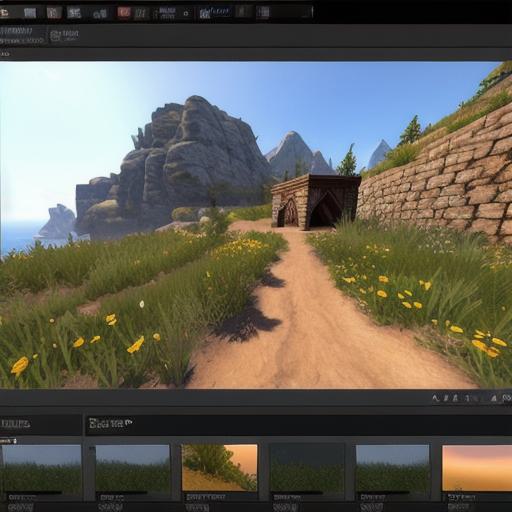
Construct 3 is a visual programming platform that allows you to create both 2D and 3D games without any coding required. It’s known for its ease of use and its ability to support a wide range of platforms, including web, mobile, desktop, and consoles.
Construct 3 includes a range of features such as a drag-and-drop editor, asset store, and community support that make it easy to create games quickly and efficiently. It’s also known for its fast performance and scalability, making it a popular tool for large-scale game development projects.
- Stencyl
Stencyl is a visual programming platform that allows you to create both 2D and 3D games without any coding required. It’s known for its ease of use and its ability to support a wide range of platforms, including web, mobile, desktop, and consoles.
Stencyl includes a range of features such as a drag-and-drop editor, asset store, and community support that make it easy to create games quickly and efficiently. It’s also known for its fast performance and scalability, making it a popular tool for large-scale game development projects.
- GameMaker Studio
GameMaker Studio is a popular game development tool that allows you to create both 2D and 3D games for multiple platforms, including PC, mobile, web, and consoles. It’s known for its ease of use and its ability to support a wide range of programming languages, making it an accessible tool for game developers with different skill levels.
GameMaker Studio includes a range of features such as a drag-and-drop editor, asset store, and community support that make it easy to create games quickly and efficiently. It’s also known for its fast performance and scalability, making it a popular tool for large-scale game development projects.
- Unity Asset Store
The Unity Asset Store is a marketplace where you can find a wide range of assets such as models, animations, plugins, and tools that you can use in your Unity projects. It’s known for its vast selection of high-quality assets and its ease of use, making it an accessible tool for game developers of all skill levels.
The Unity Asset Store includes a range of features such as asset ratings, reviews, and search functionality that make it easy to find the assets you need for your project. It’s also known for its fast performance and scalability, making it a popular tool for large-scale game development projects.
- Game Maker Studio 2
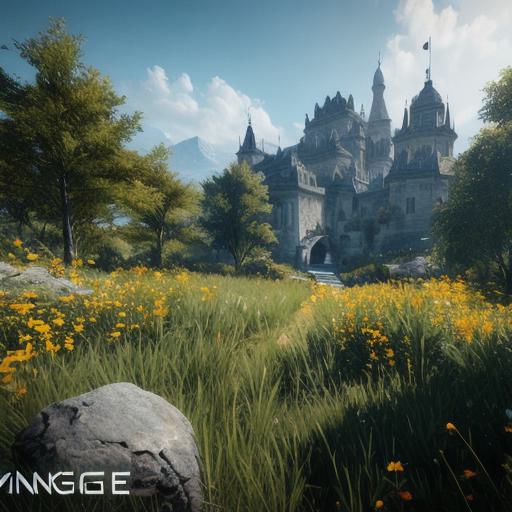
Game Maker Studio 2 is the latest version of the popular game development tool GameMaker Studio. It’s known for its advanced features such as real-time rendering, physics simulation, and animation tools, which make it easy to create stunning visual effects and animations.
Game Maker Studio 2 includes a range of features such as a drag-and-drop editor, asset store, and community support that make it easy to create games quickly and efficiently. It’s also known for its fast performance and scalability, making it a popular tool for large-scale game development projects.
- Godot Engine
Godot Engine is an open-source game development tool that’s known for its ease of use and its ability to support both 2D and 3D game development. It’s a versatile tool that can be used for a wide range of game development tasks, including creating levels, characters, animations, and sound effects.
Godot Engine includes a range of features such as a drag-and-drop editor, asset store, and community support that make it easy to create games quickly and efficiently. It’s also known for its fast performance, making it a popular tool for game developers who need to optimize their games for speed.
In conclusion, the best game development tools will depend on your specific needs and skill level. However, the above-mentioned tools are some of the most popular and widely used game development tools in the industry, and they offer a range of features that make them accessible to game developers of all skill levels.
